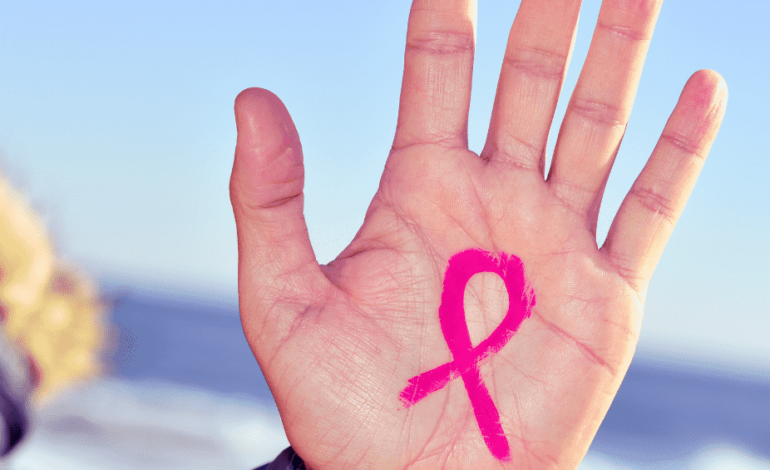“October is Breast Cancer Awareness Month, an annual campaign to raise awareness about the impact of breast cancer. This year we RISE to ensure every woman has access to the screenings she needs and the support she deserves. When we RISE, we Rally in Screening Everyone.”
Screening guidelines according to the U.S. Preventative Task Force Services
- Women ages 40-49 with average risks: “The decision to start screening with mammography in women before age 50 should be an individual one. Women who place a higher value on the potential benefit than the potential harms may choose to begin screening once every two years between the ages of 40 and 49 years”.”
- Women ages 50-74 with average risks: Screening with mammography once every two years is recommended. The evidence is insufficient to assess clinical breast examination’s additional benefits and harms.
- Women 75 and older with average risks: Current evidence is insufficient to determine the balance of benefits and harms of screening mammography in women aged 75 years or older.
- Self-breast exams: Adult women of all ages are encouraged to perform breast self-exams at least once a month. “Forty percent of diagnosed breast cancers are detected by women who feel a lump, so establishing a regular breast self-exam is very important.”- Johns Hopkins Medical Center.
- While mammograms can help you to detect cancer before you can feel a lump, breast self-exams help you to be familiar with how your breasts look and feel so you can alert your healthcare professional if there are any changes.
Breast Cancer Risk Factors
- Increased age: Most breast cancers are diagnosed after age 50.
- BRCA 1 and BRCA 2: Women who have inherited changes (mutations) to certain genes, such as BRCA1 and BRCA2, are at higher risk of breast and ovarian cancer.
- Reproductive history. Starting menstrual periods before age 12 and starting menopause after age 55 expose women to hormones longer; having the first pregnancy after age 30, not breastfeeding, and never having a full-term pregnancy can raise breast cancer risk.
- Having dense breasts. Dense breasts have more connective tissue than fatty tissue, which can sometimes make it hard to see tumors on a mammogram. Women with dense breasts are more likely to get breast cancer.
- Personal history of breast cancer or certain non-cancerous breast diseases. Women who have had breast cancer are more likely to get breast cancer a second time. Some non-cancerous breast diseases, such as atypical hyperplasia or lobular carcinoma in situ, are associated with a higher risk of getting breast cancer.
- Family history of breast or ovarian cancer. A woman’s risk for breast cancer is higher if she has a mother, sister, or daughter (first-degree relative) or multiple family members on either her mother’s or father’s side of the family who has had breast or ovarian cancer. Having a first-degree male relative with breast cancer also raises a woman’s risk.
- Previous treatment using radiation therapy. Women who had radiation therapy to the chest or breasts (for instance, treatment of Hodgkin’sHodgkin’s lymphoma) before age 30 have a higher risk of getting breast cancer later in life.
- Exposure to the drug diethylstilbestrol (DES).
- Not being physically active. Women who are not physically active have a higher risk of getting breast cancer.
- Being overweight or having obesity after menopause. Older women who are overweight or have obesity have a higher risk of getting breast cancer than those at a healthy weight.
- Taking hormones. Some forms of hormone replacement therapy (those that include both estrogen and progesterone) taken during menopause can raise the risk for breast cancer when taken for more than five years. Certain oral contraceptives (birth control pills) also have been found to raise breast cancer risk.
- Drinking alcohol. Studies show that a woman’s risk for breast cancer increases with the more alcohol she drinks.
How Breast Cancer Can Affect Your Mental Health
Breast cancer can affect your mental health at every stage of your disease, from your diagnosis and treatment to your remission and years after treatment. The mental agony of having a life-changing and potentially lethal diagnosis can lead you on an emotional rollercoaster that you may not be ready for, as you may feel all kinds of new emotions on a daily basis, not to mention the emotional toll of the treatment side effects. It is imperative that you have a strong, healthy support system, join a breast cancer community of some sort (whether online or in person), and consider talking to a therapist who can help guide you through the emotional and mental toll associated with a breast cancer diagnosis, regardless of the stage, prognosis, or treatment plan.
Treatment Side Effects And Your Mental Health
Breast cancer treatment, whether hormone replacement therapy, chemotherapy, radiation, or surgical removal of the breast tissue, can bring side effects such as insomnia, memory changes, anxiety, nightmares, and mood swings. The chemotherapy side effects can be extremely unpleasant and painful and can lead one down a deep dark hole of depression. In addition, hormone level changes can influence emotions, and weight changes can be challenging to deal with; as a result, some women self-blame while others feel punished.
Side effects may continue after treatment when post-traumatic stress disorder (PTSD) can trigger the emotions you experienced at diagnosis or during treatment.
The Fear Of The Unknown
When you first feel a lump in your breast or when you have a mammogram that requires further testing, your head quickly goes into a dark place of “what f’s.” It is essential to try to stay neutral in your thoughts and emotions until you have a breast cancer diagnosis confirmed on tissue biopsy. A cancer diagnosis is scary, and the fear of the unknown about your future, your prognosis, your daily life, your treatment, and your loved ones are all realistic fears to have, but it is important to develop and use healthy coping mechanisms to deal with these fears. These coping mechanisms can include spending time with loved ones, doing things you enjoy and love, talking to a therapist, and engaging with your breast cancer support group.
The Fear Of Your Reoccurrence
Losing your identity and dealing with loss
Women who undergo breast cancer treatment (chemotherapy and/or breast tissue removal surgery) may often feel their identity is stripped away from them as they lose their hair, eyebrows, eyelashes, and boobs. This physical transformation, coupled with extreme weight loss, can make many women feel as though they have lost their femininity and true identity. These feelings can lead to extreme emotions such as anger, anxiety, and depression. It is important to consult with your breast cancer community about these feelings and develop coping strategies such as finding wigs you are comfortable wearing or talking to your surgeon about future breast reconstruction surgery to give you some hope. The loss of your boobs can feel like a grieving period, and understandably so, as women’s breasts provide them with a sense of femininity and identity.
- Get into a breast cancer support community.
- Rely on a robust and healthy relationship
- See a therapist
- Take care of yourself but eating nutritious food, drinking plenty of water, moving your body, and engaging in restful sleep.
- Engage in activities that make you happy
- Develop a healthy relationship with your breast cancer doctor and feel open to asking them questions about anything.
- Set boundaries with yourself and with others when you are not feeling well.
- Be able to ask for help when you need it
- Educate yourself on your type of breast cancer and the mental and emotional effects of breast cancer.
How AKUA Can Help You
AKUA Mind and Body is a full-service treatment center that provides detox, residential treatment, partial hospitalization, intensive outpatient treatment, outpatient treatment, and virtual treatment to both men and women struggling with a dependency, a mental health disorder, or both (co-occurring disorder). AKUA Mind and Body provides compassionate, evidence-based treatment to all individuals and families. We combine evidence-based medications and psychotherapy approaches with holistic therapies such as meditation, yoga, and equine therapy, as we believe in treating the mind, body, and spirit.
Our clinical staff and ancillary treatment teams take great pride in the care that we provide to our clients and their families. From intake to discharge, we believe in treating the client as an individual and not just treating the disorder. As a result, we provide individualized treatment plans for every client. We offer treatment services across many locations in California, including Orange County, Newport Beach, San Diego, and Sacramento.




